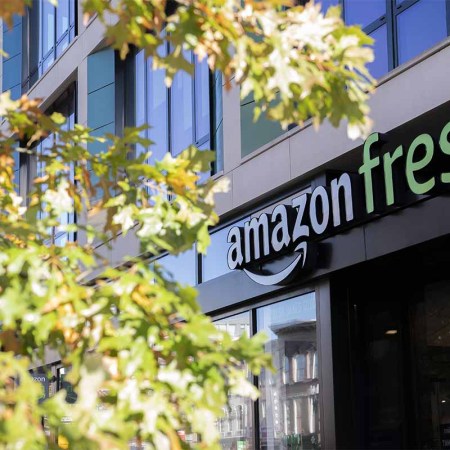The push to provide global broadband internet from space has launched a new kind of 21st-century space race, and Amazon may be about to take the lead. The company recently filed paperwork with the U.S. government to launch thousands of satellites as part of Project Kuiper.
Amazon filed the application with the FCC on July 4, CNET reported. The internet giant requested permission to “launch and operate a non-geostationary satellite orbit system using Ka−band frequencies.” Project Kuiper will use 3,236 satellites orbiting 366 to 391 miles above Earth to provide broadband internet globally. The satellites will de-orbit after 10 years to reduce the effects of space debris, according to Geekwire.
“Amazon’s mission is to be Earth’s most customer-centric company, and the Kuiper System is one of our ambitious projects to fulfill this mission,” the filing stated. “The Kuiper System will deliver satellite broadband communications services to tens of millions of unserved and underserved consumers and businesses in the United States and around the globe.”
An Amazon spokesperson called submitting the application to the FCC “the first step” in an email to CNET. “Next, the FCC will thoroughly review our application and we look forward to working with them throughout this process.”
If approved, Amazon’s satellites will join those launched by SpaceX’s Starlink project back in May. According to Technology Review, Amazon’s filing lists Kuiper’s president as a former Starlink engineer who was reportedly fired by Elon Musk in a SpaceX reorganization. Both companies followed billionaire Richard Branson, whose company OneWeb launched satellites for a high-speed internet space project in February.
SpaceX has permission to fly 12,000 small satellites by 2027, and Technology Review reported an estimated 1,100 satellites could be launching each year by 2025.
Editor’s Note: RealClearLife, a news and lifestyle publisher, is now a part of InsideHook. Together, we’ll be covering current events, pop culture, sports, travel, health and the world. Subscribe here for our free daily newsletter.
Thanks for reading InsideHook. Sign up for our daily newsletter and be in the know.


















